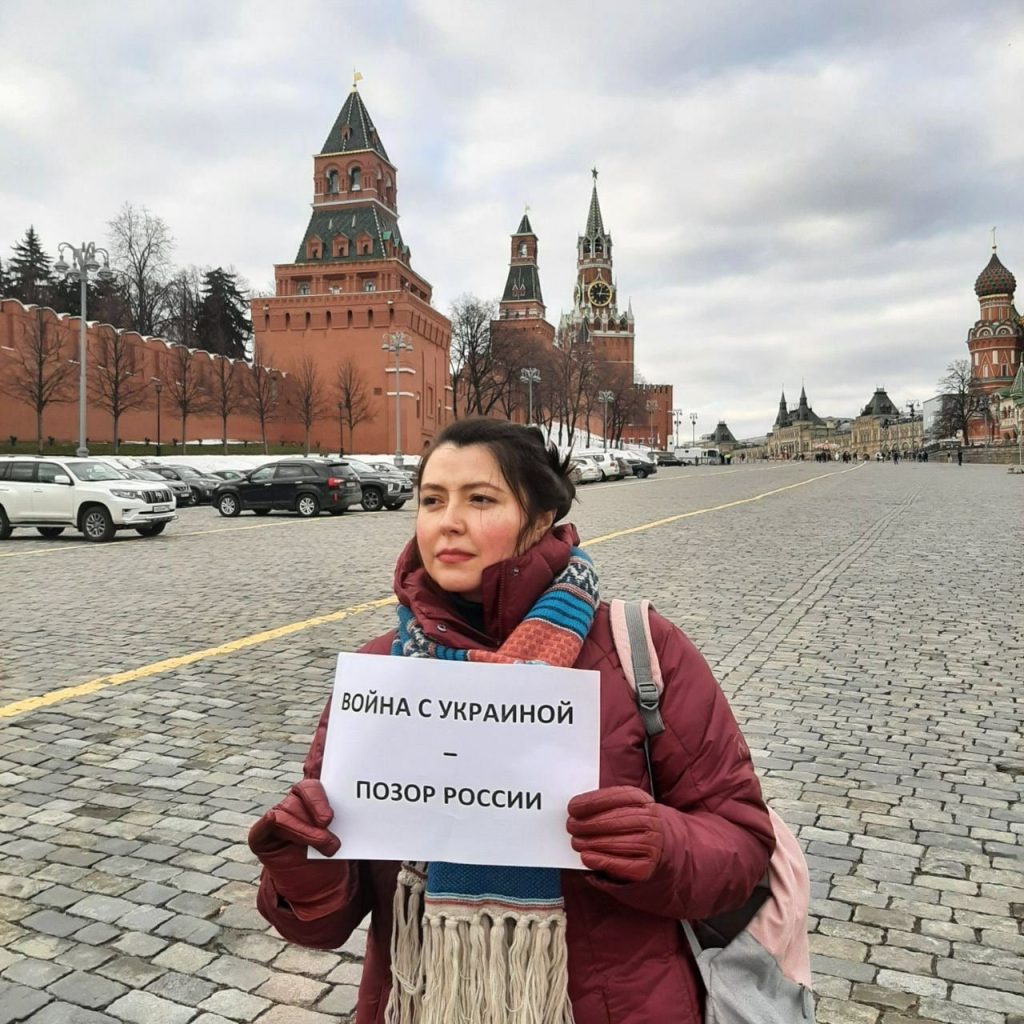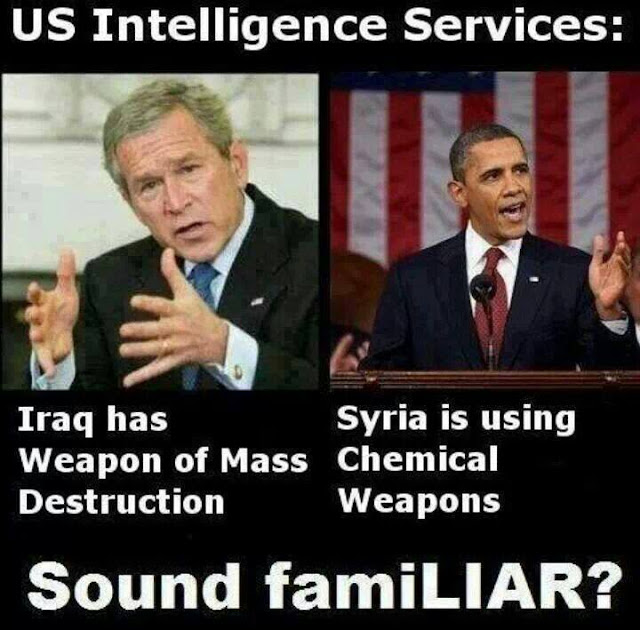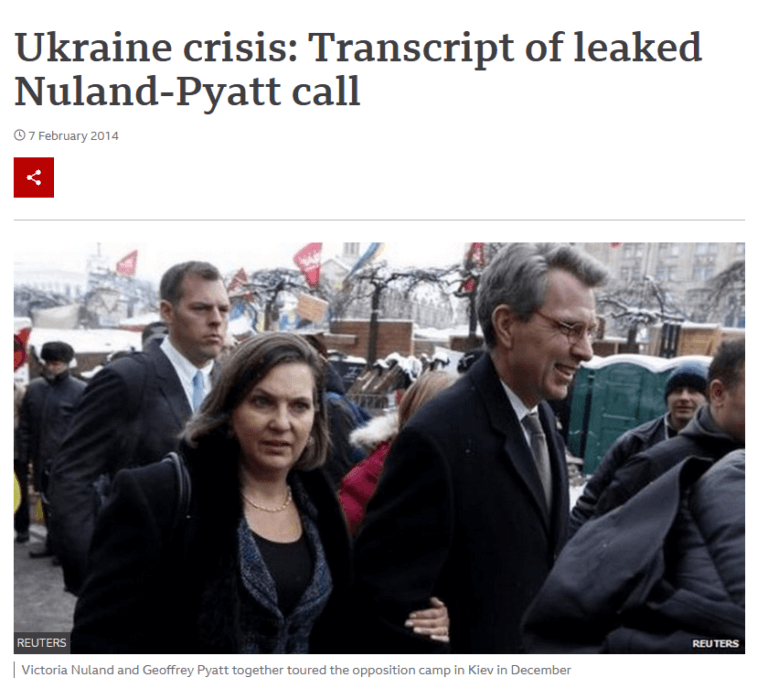
Ukraine and the Media:
Replacing History with Mythology
Stefan Moore / CounterPunch
(March 16, 2022) — The dark spectre of war is once again haunting Europe and the world. As the gruesome death toll mounts from Russia’s invasion of the Ukraine we stand on the brink of the unthinkable — a nuclear confrontation which could literally spell the end of life on earth.
Unfortunately, the western media has largely reduced the complex causes behind this disaster to one simplistic meme: It’s all the fault of one man — Vladimir (“Mad Vlad”) Putin the evil autocrat, a modern-day Stalin, an unhinged Hitler with visions of global domination.
Unless you adhere to this facile bogyman narrative that reduces a complex global conflict with deep historical roots to a binary contest between good and evil, you are siding with the enemy and won’t get a word in edgewise in any discussion about the real causes behind this horrific war.
To even suggest that the US and its NATO allies might share some responsibility by pushing Russia to the brink and encouraging the Ukraine to reject compromises that could have prevented the invasion, automatically makes you a Putin apologist, a Kremlin stooge or worse.
Of course, we’ve been here before. From Vietnam to the illegal invasions of Bosnia, Iraq, Libya, Syria and Somalia the US foreign policy establishment and a too often compliant media have made a fine art of crafting simplistic narratives. Not so long ago, the hallowed New York Times became the leading cheerleader for the Iraq invasion that was later proved to be based on the completely false claim that Saddam Hussein was building a terrifying arsenal of weapons of mass destruction.

In the White House-media echo chamber, so called “evidence” was fed to the Times by Bush administration officials who then claimed the Times was one of the sources of their evidence. Only after the loss of over a million lives and trillions of dollars did the truth come out, but the “paper of record” never published a correction.
Instead, a new reason was concocted for going to war — to topple the evil dictator Saddam Hussein. This is the same kind of simplistic narrative now being used to claim that Russia’s invasion of the Ukraine rests solely on the wicked persona of Vladimir Putin, but it’s dangerously misleading.
“By tying the problem of the Ukraine to one man, American policymakers are dealing with the wrong problem,” says former US intelligence analyst Scott Ritter: “Russia’s interests are greater than any single individual, no matter how long serving or powerful.”
Today, as we are saturated with numbing images of bombs exploding, buildings turned to rubble and bloodied corpses, the media is MIA when it comes to reporting on how we got here in the first place. TV news anchors and flak-jacketed correspondents reporting from the frontlines provide almost no historical context to help viewers grasp the chain of events that precipitated the Russian invasion.
From the start, the war in eastern Ukraine that precipitated the wider conflict has been reduced to a war between the Ukrainian army and “pro-Russian separatists”, a purposely misleading label that obscures the fact that there are really two main cultural and linguistic groups in the Ukraine — one made up of 60% ethnic Ukrainians in the west and about 30% ethnic Russians in the east — with Ukrainians in the west identifying more with Europe, those in the east with Russia.
Seldom if ever explained is that the current crisis began in late 2013 when the democratically elected president Viktor Yanukovych, viewed by many ethnic Ukrainians as pro-Russian, rejected an EU (IMF) loan deal that imposed harsh austerity measures in favor of a more favorable deal offered by Russia.
Following this fateful decision, there were mass anti-government protests and Yanukovych was overthrown in a US-engineered coup — a claim given credence by the billions of dollars that the US spent on regime change (in the name of democracy promotion) in the Ukraine and a smoking gun in the form of a secret recording of a phone conversation between then-Assistant Secretary of State Victoria Newland and US ambassador Geoffrey Pyatt where they can be heard plotting to install Ukraine’s next leader weeks prior to the protests that led to Yanukovych’s ouster.

Although the toppling of Yanukovych is not acknowledged as a coup in the mainstream media, it is vital to understanding the current situation: his removal was the spark that ignited Russia’s reaction to everything that followed: the new government’s ban on the teaching of the Russian language, the demand for autonomy by ethnic Russians in the Donbass, and the attacks on ethnic Russians by the Ukrainian army and neo-Nazi militias with the loss of 14,000 civilian and military lives.
Russia’s perspective is almost completely absent from the media that has airbrushed out its most fundamental concern – namely being surrounded by NATO forces and nuclear warheads after the US promised Russia that it would not expand NATO “one inch eastward” (in the words of George HW Bush’s Secretary of State James Baker) following the collapse of the Soviet Union.
We rarely if ever hear that, in blatant violation of Baker’s promise, NATO has expanded its forces 800 miles east to Russia’s border since 1996, or that when Ukraine’s NATO membership was first proposed back in 2008, Russia declared it to be an existential threat and a red line it would not allow to be crossed.
Instead, the official narrative coming from the US State Department and an overly credulously media is that a malevolent and possibly unhinged Putin has invaded the Ukraine with revanchist ambitions of redrawing Russia’s borders to recreate the Russian Empire.
But Putin has made only one clear and unambiguous demand – that the Ukraine not join NATO and remain neutral. Of course, there are legitimate questions about how this demand impinges on Ukrainian sovereignty, but historical precedents matter.

The most obvious is the Cuban missile crisis that brought the world to the brink of nuclear Armageddon when US security trumped Cuban sovereignty and its right to become part of a Soviet deterrent near the US border. And why do our pundits never ask — what would happen to the sacrosanct notion of sovereignty if Mexico or Canada stationed Russian nuclear warheads and troops on US borders? As the Los Alamos Study Group reports: “Security for one state requires security for others. This is a core principle of European security which Russia rightly insists on.”
It’s also astounding that the press has completely ignored the decades the decades of dire warnings by America’s most senior foreign policy officials about NATO expansion since the collapse of the Soviet Union. In the early 1990s US diplomat George Kennan, an arch anti-communist and the architect of the US strategy of Soviet containment, sounded the alarm that “NATO expansion would be the most fateful error of American policy in the entire post-cold war era…a strategic blunder of potentially epic proportions.”
Subsequently, when NATO first considered Ukrainian and Georgian membership in 2008 CIA director and former US ambassador to Russia William Burns warned that this would “not only touch a raw nerve in Russia, (it would) engender serious concerns about the consequences for stability in the region. With much of the ethnic-Russian community against membership (this) could lead to a major split with violence or at worst civil war.
In that eventuality, Russia would have to decide whether to intervene; a decision that Russia does not want to have to face.” And in the leadup to Russia’s invasion, the last U.S. ambassador to the Soviet Union Jack Matlock wrote: “…obviously there would have been no basis for the present crisis if there had been no expansion of the alliance following the end of the Cold War.”
These alarms have been coming from the highest-ranking members of the US foreign policy establishment including Henry Kissinger since 1989 and the failure to report them is a serious omission from the historical record.
Make no mistake, the war in the Ukraine is first and foremost a US-Russia proxy war over resources and hegemony that, cynically, the US is willing to fight to the last Ukrainian.
“The US has led the Ukraine down the primrose path,” says international relations scholar John Mearsheimer. They have encouraged Ukraine’s leaders to “poke the Russian bear in the eye,” insist on their right to join NATO and ignore Russia’s warnings that they would never allow this to happen.
Don’t worry, the US has told them, we have your backs — knowing full well that no American troops would ever come to their rescue. The media are complicit in this macabre charade as they cheerlead Ukrainian citizens fighting with Molotov cocktails against one of the biggest and most highly trained military forces in the world.
Standing on the sidelines as these untrained fighters risk being blown to pieces, the US and its NATO allies are pouring billions of dollars of weapons into the Ukraine to prolong an unwinnable war.
Meanwhile, the propaganda machines on both sides are now in hyperdrive. In addition to arresting thousands of protesters against the war, Russia has banned Facebook and Twitter, and shut down all opposition to the war on state run media, and anyone who posts “fake news” could face 15 years in prison.

In the west, Russian broadcasters RT and Sputnik have been banned in the US and Europe; a leading Russian conductor, a ballerina, and sports figures have been fired for not agreeing to say something negative about their home country; film festivals have banned Russian films; and, absurdly, there’s even an embargo on the importation of Russian cats.
And in Australia, Russophobia reached fevered pitch when a prominent talk show host ejected an audience member from the studio for asking why the media does not report Russia’s perspective about the war and Ukraine’s attacks on ethnic Russians in the Donbass.
None of my criticisms of western media are meant to justify Russia’s monstrous and devasting invasion of the Ukraine. But you’ve got to ask: Could this war have been avoided if our leaders were less intransigent and the public was more informed about its complex causes and America’s role in precipitating the crisis? If there was a better understanding of Russia’s security concerns? If the media had conveyed the warnings of insiders sounding the alarm? If reporters had been less credulous about US State Department talking points and media group think? One can only wonder.
Stefan Moore is an American-Australian documentary filmmaker who previously worked as a producer with CBS News in the US. His latest film, The Bowraville Murders, was recently invited to screen at the Sydney Film Festival and at other international festivals.
Posted in accordance with Title 17, Section 107, US Code, for noncommercial, educational purposes.